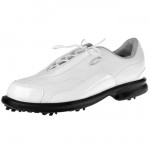Does organic fertilizer stink?
No it doesn’t. Fresh manure stinks, but manure is not supposed to be used directly on anything. Anything that stinks should be composted for several months or until it stops stinking.
Does organic fertilizer stink?
No it doesn’t. Fresh manure stinks, but manure is not supposed to be used directly on anything. Anything that stinks should be composted for several months or until it stops stinking.
No, not unless you are literally smothering the grass.. The soil microbes must eat protein fertilizer before the grass gets any benefit. With an organic program, nothing goes to waste and nothing is washed away.
You have probably seen all the new organic foods and organic cleaning products it super markets. Organic bleach, organic chips, and so on. Now, there is organic lawn care well. Organic lawn care is rising fast, and includes using eco-friendly methods of lawn maintenance and a wide range of natural products that are now available. A lot of people do not realize how many of regular yard maintenance tasks can be extremelly harmful to the environment. Hundreds of thousands of gallons of water are waisted each year alone on lawn watering and irrigation methods. Organic lawn care could be as simple as recycling rain water to provide for your lawn. The methods bellow will get you up to date and up to speed with organic lawn care so you can do your part to keep our planet and environment beautiful.
Read more about organic lawn care
Technorati Tags: organic, environment, lawn
 I personally know a man who lives in Bellwood PA. He walks on his lawn atleast once a month with regular golf shoes. The spikes in the golf shoes act as an aeration device. They poke small holes the soil and allow water and oxygen to enter the root system of the grass. Give this a try monthly, or let us aerate your lawn and watch the difference appear in only weeks. You will have a lawn greener than all of your neighbores.
I personally know a man who lives in Bellwood PA. He walks on his lawn atleast once a month with regular golf shoes. The spikes in the golf shoes act as an aeration device. They poke small holes the soil and allow water and oxygen to enter the root system of the grass. Give this a try monthly, or let us aerate your lawn and watch the difference appear in only weeks. You will have a lawn greener than all of your neighbores.
Mow your Grass Higher
If you mow your grass low, the weeds will grow before the grass and shade out the grass from getting sunlight. Grass turns sunlight into sugar which it needs for food. Lots of food ensures beautiful green, lush grass. Cutting it short leads to beautiful, green (sometimes), lush weeds. It also kills your grass causes dreaded brown patches and horrible looking soil.
– more shade to the soil leads to less watering
– deeper roots which leads to less watering
– thicker turf which leads to fewer weeds
– slower growth which leads to less mowing
If I Mow Low I Won’t Have To Mow as Often
Not True! Grass needs grass blades to photosynthesis; that is convert sunshine into sugar. It does this so it is able to feed the grass roots. When you destroy the blades, the grass rushes to make new blades because the roots are getting no sugar. The grass does not want to die so it tries to grow the blades as fast as it can… In the process of growing so fast, the grass uses up most of its stored sugar. Which in return causes the grass to become unhealthy. Now the grass is vulnerable to disease and pests. Tall grass is healthier and can use the extra sugar to make rhizomes (more grass plants) thus thickening the turf. Have you ever noticed that short grass in the summer is always riddled with dead brown patches?
Do you have an over-growth of weeds?
Trying mowing with the blade setting at about 3 1/2 more often than you regularly would. Your grass’s most critical growing point is at the root. While most weeds is at the top of the stem. So, it is the same as giving your grass a hair cut, and chopping off the head of the weeds.
Leave the grass clippings in the yard!
Leaving the clippings in your lawn the absolute number one way to ensure you have healthy, thick turf. Clippings toss the nutrients that are MUCH needed by your lawn right back into the soil. If you don’t leave the clippings, you will notice your soil starts to look more like dirt than soil. Some people worry about the clippings “clumping” up. This only happens if you mow to low, or don’t mow enough.
Technorati Tags: grass blades, photosynthesis, unhealthy, disease, pests, growing, healthy, turf, soil